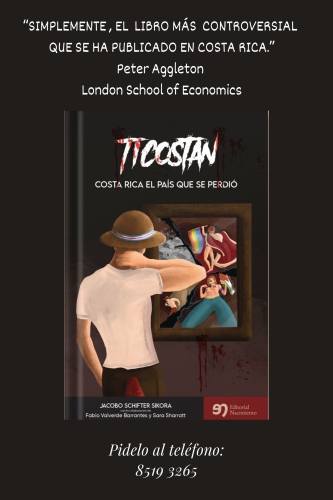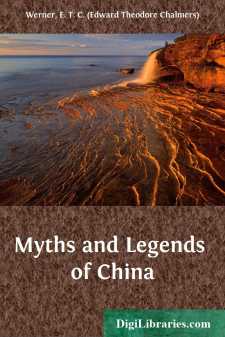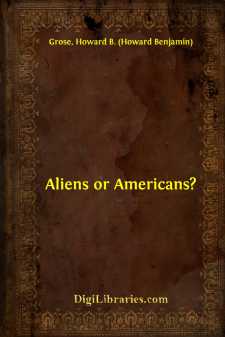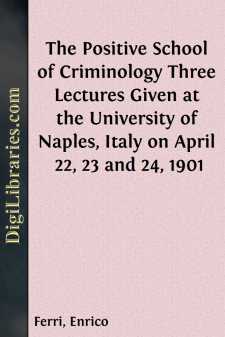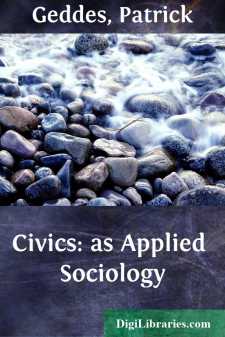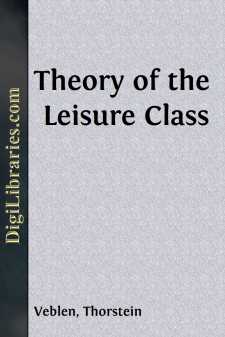Social Science
Social Science Books
Sort by:
by:
Jacobo Schifter
Un libro polémico acerca de los mitos sobre el país de "Pura Vida" que abarca una crítica mordaz a la cultura woke y al movimiento lbgtq.
THE CRUCIFIXION OF THE OUTCAST. A man, with thin brown hair and a pale face, half ran, half walked, along the road that wound from the south to the town of Sligo. Many called him Cumhal, the son of Cormac, and many called him the Swift, Wild Horse; and he was a gleeman, and he wore a short parti-coloured doublet, and had pointed shoes, and a bulging wallet. Also he was of the blood of the Ernaans, and...
more...
Chapter I The Sociology of the Chinese In spite of much research and conjecture, the origin of the Chinese people remains undetermined. We do not know who they were nor whence they came. Such evidence as there is points to their immigration from elsewhere; the Chinese themselves have a tradition of a Western origin. The first picture we have of their actual history shows us, not a people behaving as if...
more...
UNGUARDED GATES Wide open and unguarded stand our gates,And through them presses a wild, motley throng—Men from the Volga and the Tartar steppes,Featureless figures of the Hoang-Ho,Malayan, Scythian, Teuton, Celt, and Slav,Flying the old world's poverty and scorn;These bringing with them unknown gods and rites,Those, tiger passions, here to stretch their claws.In street and alley what strange...
more...
by:
Enrico Ferri
I. My Friends: When, in the turmoil of my daily occupation, I received an invitation, several months ago, from several hundred students of this famous university, to give them a brief summary, in short special lectures, of the principal and fundamental conclusions of criminal sociology, I gladly accepted, because this invitation fell in with two ideals of mine. These two ideals are stirring my heart...
more...
by:
Thomas Clarkson
CHAPTER I. No subject more pleasing than that of the removal of evils—Evils have existed almost from the beginning of the world—but there is a power in our nature to counteract them—this power increased by Christianity—of the evils removed by Christianity one of the greatest is the Slave-trade—The joy we ought to feel on its abolition from a contemplation of the nature of it—and of the...
more...
by:
Patrick Geddes
INTRODUCTION This department of sociological studies should evidently be, as far as possible, concrete in treatment. If it is to appeal to practical men and civic workers, it is important that the methods advocated for the systematic study of cities, and as underlying fruitful action, be not merely the product of the study, but rather be those which may be acquired in course of local observation and...
more...
PREFACE The period in which the story of The World's Desire is cast, was a period when, as Miss Braddon remarks of the age of the Plantagenets, "anything might happen." Recent discoveries, mainly by Dr. Schliemann and Mr. Flinders Petrie, have shown that there really was much intercourse between Heroic Greece, the Greece of the Achaeans, and the Egypt of the Ramessids. This connection,...
more...
by:
Thorstein Veblen
Chapter One ~~ Introductory The institution of a leisure class is found in its best development at the higher stages of the barbarian culture; as, for instance, in feudal Europe or feudal Japan. In such communities the distinction between classes is very rigorously observed; and the feature of most striking economic significance in these class differences is the distinction maintained between the...
more...
by:
Eliot Gregory
There existed formerly, in diplomatic circles, a curious custom, since fallen into disuse, entitled the Pêle Mêle, contrived doubtless by some distracted Master of Ceremonies to quell the endless jealousies and quarrels for precedence between courtiers and diplomatists of contending pretensions. Under this rule no rank was recognized, each person being allowed at banquet, fête, or other public...
more...


